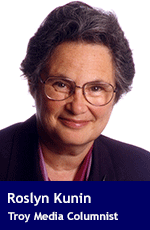 Signs of the end of summer are beginning to appear, and with it the back to school sales are starting.
Signs of the end of summer are beginning to appear, and with it the back to school sales are starting.
Most retailers are forecasting that the back-to-school season will be better than in 2014. However, beside the Back to School sale signs are more Help Wanted signs –not only in retail stores but also in restaurants and establishments. Students who took summer jobs leave them to go back to school, some of them early to give themselves a bit of a break before they hit the classroom.
Jobs in Metro Vancouver will be the hardest to fill, and the closer to the city centre a business is, the longer it will take. Most of the vacant positions are in smaller businesses, paying lower wages. Unless you are in a family with other earners, a low wage job makes it very difficult to put a roof over your head in Vancouver.
Vancouver housing costs are well beyond the reach of an entry level service worker and yet home prices are continuing to rise. The alternative, finding an affordable place to rent, is at least as challenging. You can find Help Wanted signs in Vancouver, but it is rare to see a For Rent sign.
A vacancy rate of 4 to 5 percent is considered a comfortable, balanced market. Vancouver’s is below one-half of 1 percent. Units are snapped up as soon as they are listed. And this applies across the board, not only to the more affordable places.
Renters are protected by legal limits on how fast their rent can increase – about 2.5 percent this year. For new renters moving in, this limit does not apply and rental costs rise much faster.
Would-be renters have few options: accept cramped sub-standard accommodation if they can find it; move to the far suburbs and deal with long commutes and insufficient public transit, or leave the Vancouver area.
Increasingly, the young and the mobile are exercising this last option and going to smaller centres in British Columbia and beyond, where housing is more available and affordable. Students who do not have family in Vancouver are realizing that there are many good colleges and universities (including a University of British Columbia campus) in less expensive cities and towns.
This also affects international students, who add more to the B.C. economy than many basic resource exports, like copper, zinc and wood. Should these students start looking at Thompson Rivers University in Kamloops rather than coming to Simon Fraser University or the University of British Columbia in greater Vancouver, the metro economy will be affected.
Students, entry level workers and young people planning to start a family are feeling the pull of less costly communities. Those with trades qualifications, especially the lower paid trades, like cooks, can easily find work in smaller centres and enjoy a better quality of life on their earnings. The same is true for many service workers.
B.C.’s communities outside of the greater Vancouver area will welcome the inflow of students, young workers and families. Their economies will benefit from the spending these new arrivals generate and their businesses will enjoy a greater pool of available workers.
Those Help Wanted signs will come down a lot sooner because there are a few more For Rent signs in town.
Troy Media columnist Roslyn Kunin is a consulting economist and speaker.
The views, opinions and positions expressed by columnists and contributors are the author’s alone. They do not inherently or expressly reflect the views, opinions and/or positions of our publication.


